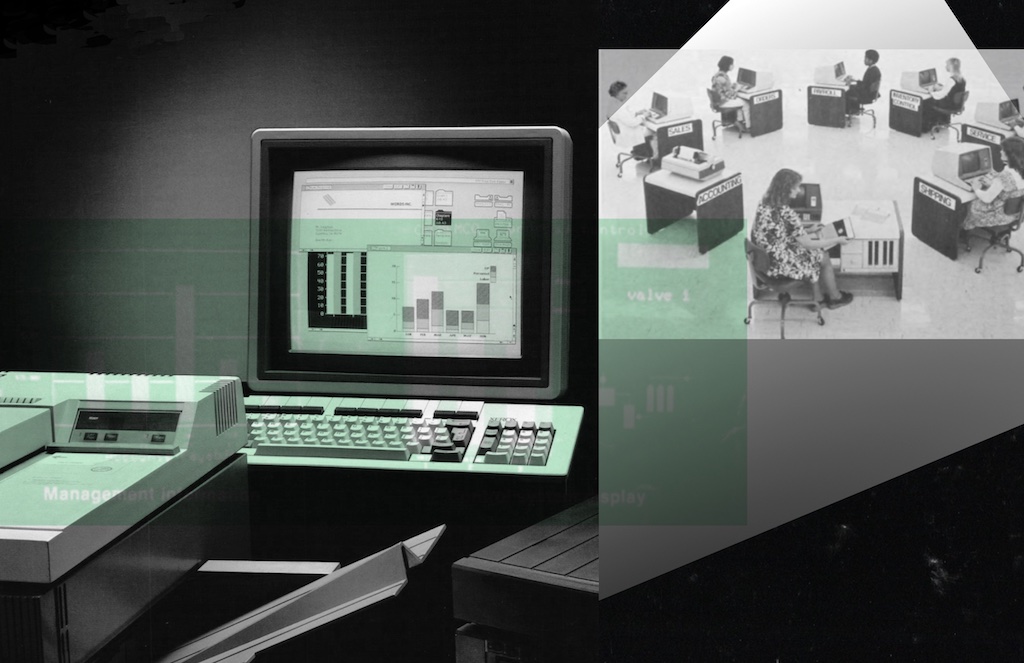
As both consumers and producers of carbon accounting tools, the information and communications technology industry (or ICT) today powerfully shapes how corporate and institutional climate impacts are monitored. Since the 2010s, big tech companies have been early and influential adopters of carbon emissions accounting and pledges, establishing these techniques as normative practices and evidence of corporate social responsibility. At the same time, the sector stands to benefit from controlling the tools and information that other sectors and organizations need to reduce their carbon emissions. How can we strike a balance between getting more granular data and building more advanced models, and recognizing when the production of new environmental data and models may lead to near monopolies, and might actually narrow our pathways to meaningful action?
ICT and Carbon: A Two-Way Street
The ICT sector–like all industries–has material impacts on the climate system. As data infrastructures, machine learning models, and smart systems expand, these impacts are growing. It’s difficult to estimate the global picture, and efficiency and substitution effects can be complex, but ICT is probably responsible for somewhere between 1.4 – 3.9% of annual emissions globally. To do its fair share in the climate struggle, the sector will have to decrease these numbers.
At the same time, digital technologies are essential to monitoring emissions and constructing the complex models through which we understand climate change. These include skills and tools like advanced data analytics, blockchain ledgers, and the Internet of Things. Counting carbon is a fraught endeavor because of the many intersecting systems and counterfactual scenarios one needs to consider; it makes sense that we’d want digital tools to help. But as networked sensors and machine learning tools play an expanding role in assessing and even predicting carbon inventories, in spite of the growing carbon costs of producing these tools, something of a paradox may be forming.
Is carbon accounting the answer?
Corporate climate action generally borrows its frameworks from the field of accounting, calculating inventories of carbon in, and carbon out, to get to carbon neutral or ‘Net Zero’. This usefully quantifies a business’ responsibility and provides metrics to assess the credibility of corporate progress on carbon goals. Yet, accounting also presumes that carbon is a fungible commodity, with offsets anywhere around the world are taken as equivalent and tradable. While the location of emissions doesn’t matter to the greenhouse gas effect, this approach has opened the door to a range of trading and offsetting schemes with high potential for fraud. Carbon numbers can be double counted, inflated, or otherwise cooked.
Simplistic methodologies, bad data, and incorrect assumptions about future events are also enduring problems in carbon markets: the national and voluntary trading of carbon offsets and certificates. Offsetting can further perpetuate colonial patterns of resource control, and a single-minded focus on carbon can undermine issues like energy equity, biodiversity, water access, and local self-determination. What’s more, dubious offsets can distract from more credible strategies for addressing climate change, such as verified removals or operational reductions against industry-specific baselines. As a result, even those who work to become carbon neutral or net zero can end up causing lasting harms.
The problems with carbon markets don’t mean that carbon accounting should be abandoned; the contributions of various actors to the composition of the atmosphere do need to be tracked. As Nobel Prize-winning economist Elinor Ostrom has demonstrated, monitoring behavior is both necessary for managing environmental resource commons and insufficient on its own for sustaining such commons. Environmental management is effective when monitoring is accompanied by other factors, such as an alignment between rules and local conditions, and the ability for everyone affected to participate in governance processes.
Monitoring behavior is both necessary for managing environmental resource commons and insufficient on its own.
So what would make carbon monitoring data better?
One way to think about this is to remain attentive to financial incentives and business pressures in carbon accounting tools. Because of increasing regulations and new state and corporate climate commitments, carbon data is increasingly lucrative. This can incentivize investment in research and new monitoring tools, but it can also incentivize unregulated markets for datasets and environmental dashboards which may or may not actually lead to reduced emissions.
Carbon accounting relies out of necessity on a hodgepodge of sources, raising concerns about methodology and certainty. Trust, accountability, and iterative development are necessary to overcome these limitations, but they can be hard to secure in the context of proprietary software, cloud platforms, and opaque machine learning models. Public standards and nonprofit or open-source development can provide useful alternatives. Accounting systems can and should also be designed with long term maintenance, accessibility, sovereignty, and surveillance concerns in mind, and with an eye to the climate impacts of the digital accounting systems themselves.
What else should tech actors looking to address climate change keep in mind?
At the end of the day, climate change is more a political problem than a data problem. Carbon accounts can provide necessary snapshots of operations and important heuristic tools for companies, institutions, and governments. But in and of themselves, carbon inventories and net-zero campaigns do little to guarantee emissions reductions, let alone holistic shifts towards environmental and social responsibility beyond the ICT sector. Bringing the public into carbon governance, and creating transparent forms of monitoring and vetting data, will help bring accountability into the tools of accounting.

